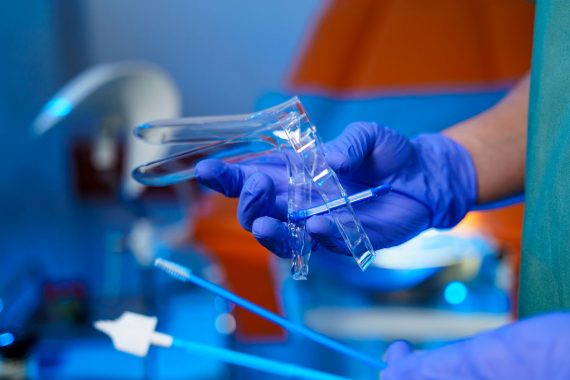Public needs education on role of HPV in cervical screening

Most women are not clear about how HPV testing is used in the current cervical screening programme, research has revealed.
In a survey done by UK researchers, just 12% of women asked selected the correct statement on the role of HPV testing in smear tests.
While three-quarters of women were aware of HPV in the YouGov survey of almost 2,000 women aged 18 to 70 years, there was also a lack of understanding about its role as a risk factor in the development of cervical cancer and that most sexually active people will contract the virus at some point.
HPV testing was introduced as the primary screening test in the cervical screening programme in England, Scotland and Wales in 2019.
Since then, screening samples have been first tested for high-risk strains with the sample only checked for cellular abnormalities if they are present.
The researchers said this approach paves the way for longer screening intervals but when this was announced in Wales in January 2022, the backlash suggested that awareness of the role of HPV testing among the general public was low.
Around 73% of women who were aware of HPV knew a positive result does not mean they would definitely develop cervical cancer, the survey funded by Cancer Research UK showed.
But only 19% of women were aware of the long timeline for HPV infection to develop into cervical cancer, the researchers reported in the Journal of Medical Screening.
The findings point to the continued need for awareness-raising campaigns to ensure informed choice about screening and mitigate public concern when screening intervals are extended, they concluded.
Figures published earlier this year by NHS England showed the proportion of women who have never had cervical screening, or are not up to date with their tests, is the highest in 10 years at around 4.6 million.
There has also been some concern about falling HPV vaccination rates among teenagers. In the 2021/22 academic year the total vaccination rate was down by 7% in year-8 girls at school and down by 8.7% among year-8 boys.
Study lead Professor Jo Waller, professor of cancer behavioural science at Queen Mary University of London, said it was the largest study to explore British women’s understanding of primary HPV testing since it was introduced.
‘While positive strides have been made to increase awareness of HPV, our research reveals major gaps in women’s understanding of current approaches to cervical screening.
‘Improving awareness can help to reduce feelings of uncertainty and confusion about screening results.
‘It will also help people understand the reasoning behind any future updates to the screening programme, such as HPV self-sampling and changes to intervals between screening appointments,’ she added.
Visit Pulse Reference for details on 140 symptoms, including easily searchable symptoms and categories, offering you a free platform to check symptoms and receive potential diagnoses during consultations.









